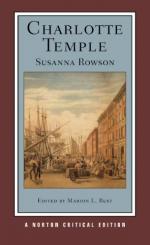But as you have lead to the subject, I think we may as well return to the distressed Charlotte, and not, like the unfeeling Mrs. Crayton, shut our hearts to the call of humanity.
CHAPTER XXIX.
We go forward again.
The strength of Charlotte’s constitution combatted against her disorder, and she began slowly to recover, though she still laboured under a violent depression of spirits: how must that depression be encreased, when, upon examining her little store, she found herself reduced to one solitary guinea, and that during her illness the attendance of an apothecary and nurse, together with many other unavoidable expences, had involved her in debt, from which she saw no method of extricating herself. As to the faint hope which she had entertained of hearing from and being relieved by her parents; it now entirely forsook her, for it was above four months since her letter was dispatched, and she had received no answer: she therefore imagined that her conduct had either entirely alienated their affection from her, or broken their hearts, and she must never more hope to receive their blessing.
Never did any human being wish for death with greater fervency or with juster cause; yet she had too just a sense of the duties of the Christian religion to attempt to put a period to her own existence. “I have but to be patient a little longer,” she would cry, “and nature, fatigued and fainting, will throw off this heavy load of mortality, and I shall be released from all my sufferings.”




